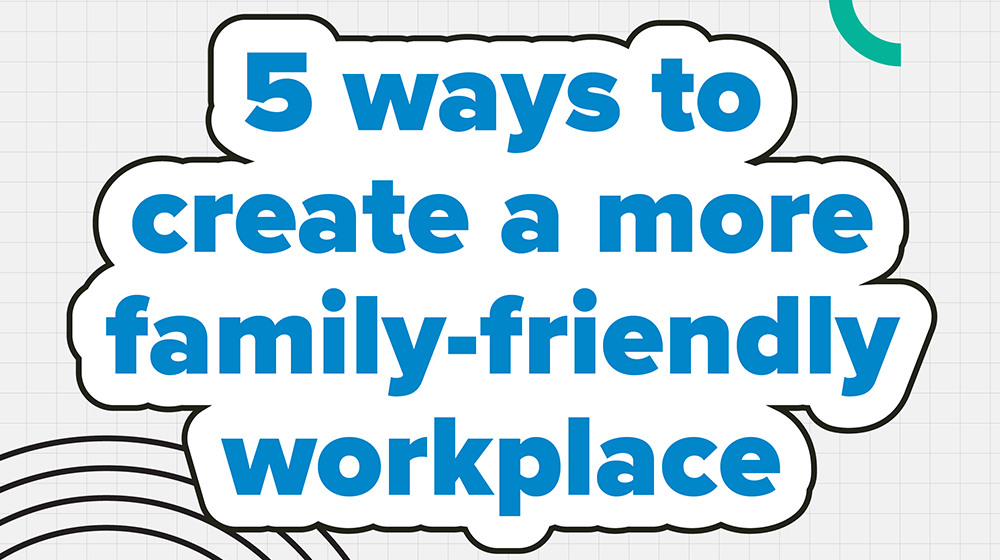In the Western Balkans and beyond, women have traditionally struggled to enter or stay in the labour force due to the unequal division of family responsibilities, lack of support from employers, and inadequate family policies and provisions from governments. At the same time, women face challenges in starting families and having the number of children they want without having to leave their jobs.
In the Western Balkans, the participation rate for women in the labour force is significantly lower than for men, ranging between 16.5 and 52 per cent. That means that over half of the productive capacity of women aged 15-64 is not being fully utilized in the countries’ economies. At the same time, fertility rates in the region hover around 1.3 to 1.5 children per woman, much lower than the two or more children people on average say they want.
In response, UNFPA’s “Expanding Choices” programme promotes family-friendly workplaces that help women and men fulfil their aspirations in their jobs and at home. Here are five steps that companies and employees can take to create supportive and sustainable environments that benefit everyone:
Flexible working hours
Work schedules no longer need to be restricted to the traditional 9-5 at the office. Flexible working hours allow employees to define the terms that best serve their overall needs while still completing their job duties. This includes choosing individual start and end times, limiting meetings to only certain hours of the day, or compressing the workweek.
Why it matters: Employees with more flexibility can better balance their work-life responsibilities, which has been shown to improve motivation and reduce stress. Companies also benefit from higher productivity, lower turnover rates and a broader talent pool that doesn’t leave out people with heavy care responsibilities.
Paid leave for all caregivers
Maternity leave is the most well-known and accepted form of paid time off, however it’s important that men and women are given equal opportunity to take care of family matters without significant consequences to their careers or income. By not providing or only providing inadequate leave for men, governments and companies reinforce harmful gender norms around caregiving, putting the responsibility solely on women.
Why it matters: Paid leave programmes not only potentially boost a company’s reputation and save costs related to staff recruitment and retention, but can also benefit society as a whole. Emphasizing engaged fatherhood and supporting men in caregiver roles help to build more equal social and gender norms.
Childcare and domestic support
Employees with care responsibilities can often feel like they’re being forced to divide their time and focus between home and work. Providing support options like financial aid for childcare, breastfeeding rooms in the workplace, and spaces in the office for children to use after school can ease the stress.
Why it matters: Greater domestic support options enable women in particular to stay in the workforce without compromising on decisions like breastfeeding or time with their family. Men and women who feel supported in their work life may also feel more confident about having the number of children they want, which strengthens their community’s resilience to demographic change.
Family-friendly culture at all levels of the company
Senior managers who use family-friendly policies like flexible working hours or parental leave set an example for other employees to do the same without fear of being penalized. This is especially important for men who may face restrictive gender norms and fear backlash from peers and employers when wanting to more equally engage in the unpaid care work of their families.
Why it matters: When top leaders act as role models for family-friendly policies, it encourages others to participate and invest in developing more initiatives that will make the programme successful and sustainable. It could also push other employers in the industry to consider family-friendly policies and gain similar benefits.
“Family-friendly” doesn’t just mean parents and children
Finally, it’s important to remember that “family-friendly” means more than just supporting parent-child relationships. Employers committed to championing family-friendly workplaces should also provide equal help and flexibility for staff who are caring for partners, older relatives, or other household members.
Why it matters: Expanding workplace routines to be responsive to family needs means recognizing the reality of how diverse family relationships are. Families come in different shapes and forms and can include care responsibilities among heterosexual partners with children as well as same-sex couples with no children, an adult and their older parent, or other household members. Reflecting the existing diversity of care responsibilities and familial bonds in workplace policies is a precondition for successfully building a family-friendly workplace culture.
After successfully launching the “Expanding Choices” programme in 2019, UNFPA and the Austrian Development Agency (ADA), the operational unit of Austrian Development Cooperation, are launching the second phase of the programme to include all countries and territories in the Western Balkans. Companies from Bosnia and Herzegovina, North Macedonia and Serbia will join existing partners in Albania and Kosovo (UNSCR1244) in the initiative, with the ADA committing €2.2 million over the next three years.
For more information about UNFPA’s Expanding Choices programme and the Champion Companies working to strengthen gender-equal and family-friendly policies, please visit: https://eeca.unfpa.org/en/expanding-choices.


